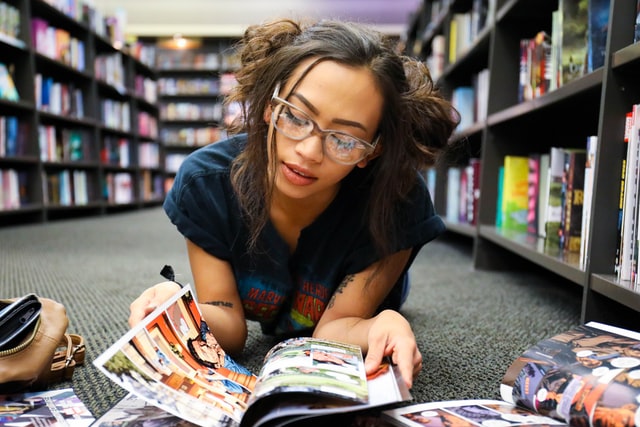Borders Book Stores are closing. It’s the end of an era.
That’s a little melodramatic, I know, but I’ve got my reasons.
Although Borders Books is known to most people as a large chain that could be found all over the country, it’s still a neighborhood store to me. I’m from Ann Arbor, Michigan, and what is now called “the original Borders” was our local bookstore. It was owned by the Borders family. Like any other family, members of the family went to high school with us, were seen around town at community functions, played in the parks. When Borders mushroomed into the 1,249 places around the country where one could buy books, fancy coffee, and a muffin, it was like seeing a hometown friend make it big.
I know that large chains like Borders often edged out the smaller independent bookstores I like to patronize, but I never thought of Borders in that category. It wasn’t an oversight that changed my vision; rather it was nostalgia.
I recall the days when my mother was a graduate student at the University of Michigan, and we went to Borders between classes. I was often wandering the magazine racks and the shelves while waiting for friends with whom I planned to see a movie, or just walk around the campus area. I liked seeing which books the staff considered favorites, or were pulled out from the shelf for recommended reading. I often went in with no intention to buy, and came out several dollars poorer—and with a great new book.
So I find the closing of Borders to be sad. The closing of Borders is sad because I’m from Ann Arbor. But it’s also sad because of the nearly 11,000 staff who will soon be unemployed in this difficult economy. One of my Facebook friends says that it’s karma for displacing so many mom-and-pop bookstores as they grew. I think it’s bigger than that.
The Borders representative notes that “the rapidly changing book industry, eReader revolution and turbulent economy” played a significant role in this business outcome.
They are right; something is changing with books. And this is what concerns me.
The closing of Borders marks the change in the way Americans read. This isn’t just about Borders; it’s about all brick-and-mortar bookstores, and libraries too. So often, we now go right online and order the book we want. It’s great for our budgets, but something else is lost. We stop browsing.
There’s something important about wandering around bookshelves. Even if you go looking for one thing, browsing gives you the opportunity to find something you weren’t looking for. It allows you to be surprised. So often, I’ve gone into a bookstore or library, and I start looking on the shelf next to my intended selection, and I find just what I really needed. It’s like grace in the information world.
As a religious woman, I’m particularly sensitive to what it means to be discovered, as compared to being pursued. Whether or not one attends a church that uses a lectionary, I know that there are some biblical passages that are often referenced and others that rarely see the light of day. I’ve heard so many sermons about David, Abraham, Joseph, Noah, Isaiah, Joshua, and a host of other male characters in the Bible that I can’t count the number. I’ve heard sermons about women, but, with Mary Jesus’ mother as a notable exception, the sermons about women often involve blame and derision—Potiphar’s wife, Mary Magdalene, Jezebel, Hagar, and Eve.
If I hadn’t flipped through the Bible for myself, I might not know anything about Dinah, Sarai, Rahab, Naomi, or Dorcas. Running into them causes me to imagine how their lives played out. It makes me wonder who God was for them. It reminds me that there is always another side to every story.
When many Christians do the religious version of online-ordering, they go right to the popular stories and they read them from the winner’s side. Browsing through bookstores taught me to spend some time, slow down, and pay attention to the things outside my normal purview.
I’m concerned that losing that browsing skill will not just change how we shop for books or read holy texts. Rachel Simon says that she fears we will lose “the serendipitous aspects of our literary journeys.” Personally, I’m afraid it will change how we see people and how we understand God.
(Originally published with Patheos here)




